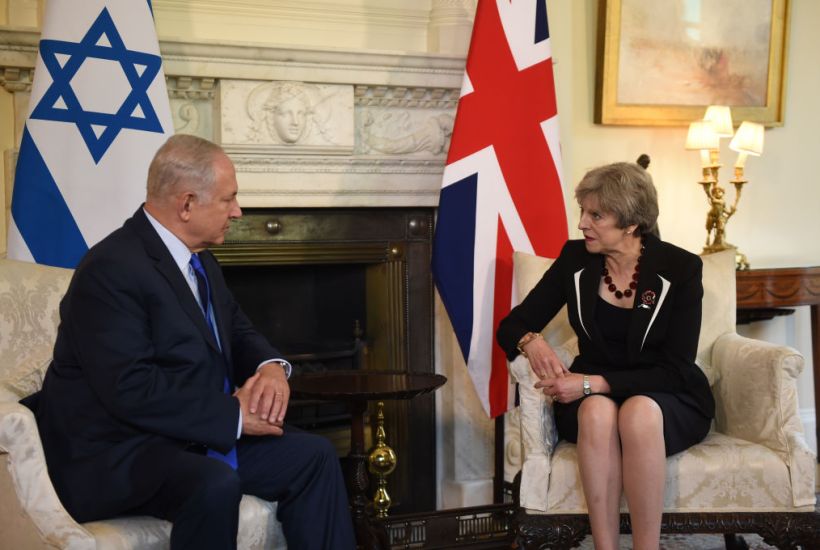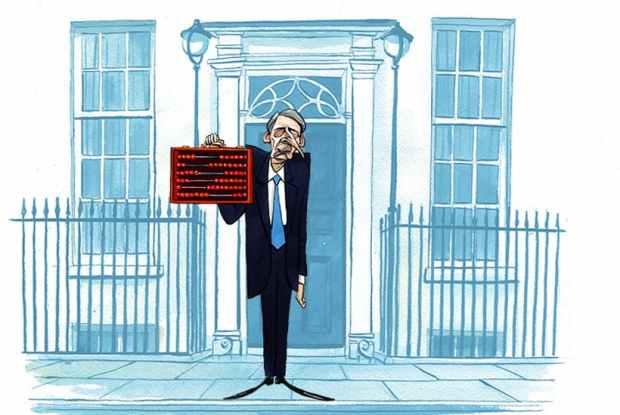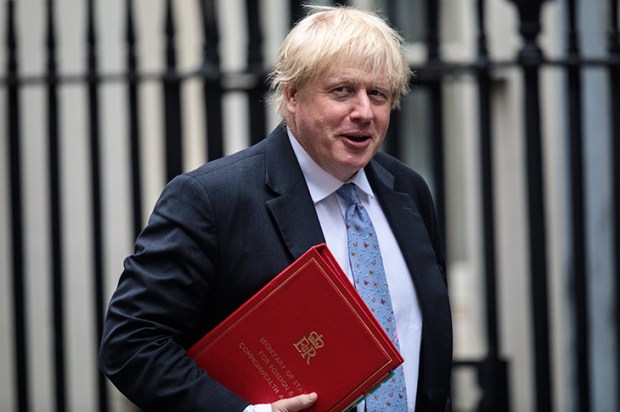The Budget this Wednesday represents this government’s best, and perhaps its last, chance to regain the political initiative. Ever since the launch of the Tory election manifesto, Theresa May has been buffeted by the political weather. The past few weeks have been particularly bad. It hasn’t rained on her but poured, leaving her in urgent need of a Budget boost.
Already this month, two cabinet ministers have had to resign. A third — who happens to be Theresa May’s most important ally — remains under Cabinet Office investigation. The Brexit optimism that followed her Florence speech is ebbing away. The sense that European leaders would declare in December that ‘sufficient progress’ had been made in the Brexit talks to move on to trade and transition has been replaced by a mounting fear that deadlock will remain. Government insiders who were optimistic after the last EU Council now complain that the 27 are toughening their position on the divorce bill.
If the talks fail to move on to the next stage in December, the May government will be further weakened. On both wings of the Tory party, there will be concern that the Prime Minister is no longer best placed to secure a good Brexit deal for Britain. Meanwhile in the Commons, the government faces a nightly slog to get a clean EU withdrawal bill through.
It is telling — and worrying — that Boris Johnson and Michael Gove, two leaders of the campaign for Brexit, are so alarmed about the government’s preparations for it. For two cabinet ministers to sit down and write a private joint memo to the Prime Minister, which was sent in such a way as to avoid the usual official channels, is almost unprecedented. But for the two ministers concerned to have been a pair who fell out in the most dramatic way possible nearly 18 months ago makes you realise just how worried they must be.
I understand that their principal concern is that preparations for Britain leaving the single market and the customs union, even after a transition, are inadequate. Whatever their many critics might say, this pair do feel an obligation to make Brexit match up to what the Leave campaign promised voters. Plainly, they are worried that it is not on course to do so.
In these circumstances, the Prime Minister could really do with a political pick-me-up. But the backdrop to this Budget is not good, to put it mildly. There is still no money left and the Chancellor is already scrabbling to fund the confidence and supply deal with the DUP, the tuition fees freeze announced at Tory conference and the gap created by his National Insurance U-turn in the spring.
So many other political tensions abound that it will be almost miraculous if the Budget does not go wrong. First of all, there is the No. 10 and 11 relationship. When one negative story appeared about Hammond in the press recently, I am told his initial reaction was to assume that Number 10 had briefed it. This paranoia is more understandable when you consider that Theresa May’s former chief of staff recently used a column in the Sun to lay into the Chancellor for lacking a ‘burning desire to change people’s lives for the better’.
One of those familiar with the discussions between Numbers 10 and 11 tells me that the problem is that it is two bunkers speaking to each other and that ‘no one really trusts anybody else’. I am told that the whips office is also frustrated that Hammond isn’t taking its warnings seriously enough about backbench opposition to planning reform. (But it should be noted that Hammond is right about the need for proper planning reform that ensures enough houses can be built where people want to live.)
Exacerbating this problem is the Chancellor’s troubled relations with a substantial section of the Tory backbenches. Many Tory Brexiteers regard Hammond as someone who is determined to talk down leaving the EU. They fume that he is so reluctant to spend money planning for no deal because he’d rather that Britain had to take whatever Brussels offers than walk away from the table. Many of them will be sorely tempted to join the pile-on if his Budget appears to be in trouble.
Then there is the Tories’ great strategic confusion over the deficit. When George Osborne was chancellor, the Tories sought to weaponise it as a political issue. They claimed that they had a plan to eliminate it and that any Labour deviation from that meant they must be planning to borrow or tax more. But when Hammond became Chancellor, he pushed back the date for balancing the books until after the next election. This year’s Tory manifesto said that the books would not be balanced until ‘the middle of the next decade’.
When you are not planning to eliminate the deficit in a whole five-year parliamentary term, it is hard to attack the opposition for its spending plans. The Tories have been left stranded in political no-man’s land on the deficit. They are unable to attack Labour properly, even as Jeremy Corbyn funds a bunch of populist promises out of extra borrowing.
At the same time, the so-called Brexit bill creates another problem for the Tories. Regular debates over whether the government should pay £20, £30 or £50 billion to the EU give voters the impression that there is money waiting around to be spent.
One way out of this political quagmire for the Tories would be to borrow to fund a massive house-building programme designed to reverse the decline in home ownership before the next election. Those close to the Budget discussions tell me that they think more money will be put into house-building — though far less than the £50 billion Sajid Javid has been arguing for — and that there will be some planning reform in the Budget, but it will be more ‘tinkering’ than anything truly radical.
What will really be missing from this Budget is a vision for a UK economy after Brexit. There will be some warm words about new technologies, such as artificial intelligence. There won’t, however, be a roadmap for how Britain will earn its money outside the single market and the customs union. Until the government has a vision for this, every drama will turn into a crisis.
James Forsyth and Torsten Bell discuss the budget on The Spectator Podcast.
Got something to add? Join the discussion and comment below.
Get 10 issues for just $10
Subscribe to The Spectator Australia today for the next 10 magazine issues, plus full online access, for just $10.
You might disagree with half of it, but you’ll enjoy reading all of it. Try your first month for free, then just $2 a week for the remainder of your first year.















Comments
Don't miss out
Join the conversation with other Spectator Australia readers. Subscribe to leave a comment.
SUBSCRIBEAlready a subscriber? Log in